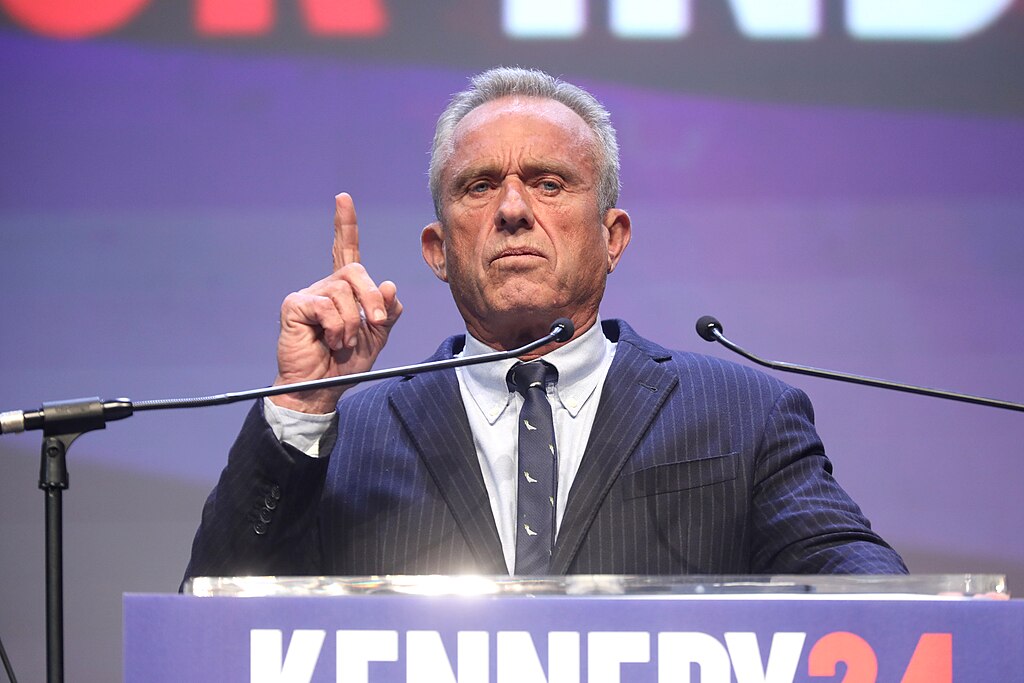President-elect Donald Trump’s contrasting Cabinet nominees for health roles—Dr. Janette Nesheiwat for Surgeon General and Robert F. Kennedy Jr. for Health and Human Services Secretary—have sparked debates about the future of vaccine policies in the U.S. With polarizing stances, their differing views could create a significant divide on one of the most critical public health issues.
Opposing Vaccine Philosophies
Nesheiwat, a practicing physician and a vocal advocate for vaccines, has championed their life-saving benefits, particularly during the COVID-19 pandemic. Her past statements have celebrated vaccines as “miraculous” tools that save lives, referencing the effectiveness of mRNA vaccines like those from Pfizer and Moderna.
In sharp contrast, Kennedy Jr. has built his reputation as a leading vaccine skeptic. Despite overwhelming scientific evidence debunking his claims, Kennedy has continued to allege connections between vaccines and autism, and he has criticized mandatory vaccination policies. His controversial remarks have extended to comparing vaccination efforts to the Holocaust—a statement he later apologized for—and asserting unverified dangers of COVID-19 vaccines.
Policy Implications
While Kennedy maintains he is not “anti-vaccine,” his rhetoric has fueled vaccine hesitancy, leading public health experts to worry about the potential consequences of his influence in the Trump administration. Kennedy’s skepticism stands at odds with Nesheiwat’s pro-science stance, setting the stage for possible clashes over public health initiatives.
The Centers for Disease Control and Prevention (CDC) has long emphasized the safety and efficacy of vaccines, underscoring their role in preventing outbreaks of diseases like measles and polio. Nesheiwat has echoed these sentiments in her public appearances, advocating for widespread vaccination to curb preventable illnesses.
However, it remains unclear how much influence either appointee will wield over vaccine policy. Trump himself has refrained from making firm commitments on the issue. When asked in a recent interview about banning certain vaccines, Trump responded ambiguously, stating he would consult with experts like Kennedy before making decisions.
Public Reactions
The potential clash between Nesheiwat and Kennedy has ignited a flurry of responses on social media:
- @ScienceMattersNow: “Putting an anti-vaxxer in charge of HHS is a disaster waiting to happen. What’s next, flat-earthers?”
- @VaccineTruth88: “Finally, someone like RFK Jr. who’s questioning Big Pharma. About time we got transparency!”
- @HealthyFamilies2024: “Dr. Nesheiwat gives me hope. Vaccines are a gift, not a government conspiracy.”
- @RFKFanClub: “Kennedy is not anti-vax; he’s pro-safe vaccines. Stop the smear campaign!”
- @DoctorSarahJones: “RFK Jr. vs. Nesheiwat will be the health policy drama of the decade. Stay tuned.”
- @ProVaxMom: “Vaccines save lives. I hope Nesheiwat can steer this administration away from RFK’s dangerous ideas.”
The Road Ahead
As Trump prepares to take office, the potential divergence in vaccine philosophies between Nesheiwat and Kennedy remains a pressing concern. Their influence could shape the administration’s approach to public health and vaccination policies, particularly amid ongoing debates about vaccine mandates and safety.
For now, Trump has left the door open for further discussions, signaling a possible balancing act between Kennedy’s skepticism and Nesheiwat’s advocacy. Whether their opposing views will complement or clash remains to be seen, but the stakes for public health couldn’t be higher.



 EU Urges Maximum Restraint in Iran Conflict Amid Fears of Regional Escalation and Oil Supply Disruption
EU Urges Maximum Restraint in Iran Conflict Amid Fears of Regional Escalation and Oil Supply Disruption  Trump Says U.S. Attacks on Iran Will Continue, Warns of More American Casualties
Trump Says U.S. Attacks on Iran Will Continue, Warns of More American Casualties  U.S.-Israel Strike on Iran Escalates Middle East Conflict, Trump Claims Khamenei Killed
U.S.-Israel Strike on Iran Escalates Middle East Conflict, Trump Claims Khamenei Killed  Trump to Address Nation as U.S. Launches Strikes in Iran, Axios Reports
Trump to Address Nation as U.S. Launches Strikes in Iran, Axios Reports  Argentina Tax Reform 2026: President Javier Milei Pushes Lower Taxes and Structural Changes
Argentina Tax Reform 2026: President Javier Milei Pushes Lower Taxes and Structural Changes  Trump Floats “Friendly Takeover” of Cuba as Rubio Reportedly Engages in Talks
Trump Floats “Friendly Takeover” of Cuba as Rubio Reportedly Engages in Talks  Middle East Conflict Escalates After Khamenei’s Death as U.S., Israel and Iran Exchange Strikes
Middle East Conflict Escalates After Khamenei’s Death as U.S., Israel and Iran Exchange Strikes  Zelenskiy Urges Change in Iran After U.S. and Israeli Strikes, Cites Drone Support for Russia
Zelenskiy Urges Change in Iran After U.S. and Israeli Strikes, Cites Drone Support for Russia  Israel Strikes Hezbollah Targets in Lebanon After Missile and Drone Attacks
Israel Strikes Hezbollah Targets in Lebanon After Missile and Drone Attacks  Netanyahu Suggests Iran’s Supreme Leader Khamenei May Have Been Killed in Israeli-U.S. Strikes
Netanyahu Suggests Iran’s Supreme Leader Khamenei May Have Been Killed in Israeli-U.S. Strikes  Israel Launches Fresh Strikes on Iran After Death of Supreme Leader Ayatollah Khamenei
Israel Launches Fresh Strikes on Iran After Death of Supreme Leader Ayatollah Khamenei  Australia Rules Out Military Involvement in Iran Conflict as Middle East Tensions Escalate
Australia Rules Out Military Involvement in Iran Conflict as Middle East Tensions Escalate  Russia Signals Openness to U.S. Security Guarantees for Ukraine at Geneva Peace Talks
Russia Signals Openness to U.S. Security Guarantees for Ukraine at Geneva Peace Talks  Marco Rubio to Brief Congress After U.S.-Israeli Strikes on Iran
Marco Rubio to Brief Congress After U.S.-Israeli Strikes on Iran  Australian PM Calls Alleged Western Australia Terror Plot “Deeply Shocking” After Arrest
Australian PM Calls Alleged Western Australia Terror Plot “Deeply Shocking” After Arrest  Trump Warns Iran as Gulf Conflict Disrupts Oil Markets and Global Trade
Trump Warns Iran as Gulf Conflict Disrupts Oil Markets and Global Trade  UK Accepts U.S. Request to Use British Bases for Defensive Strikes on Iranian Missiles
UK Accepts U.S. Request to Use British Bases for Defensive Strikes on Iranian Missiles 
































